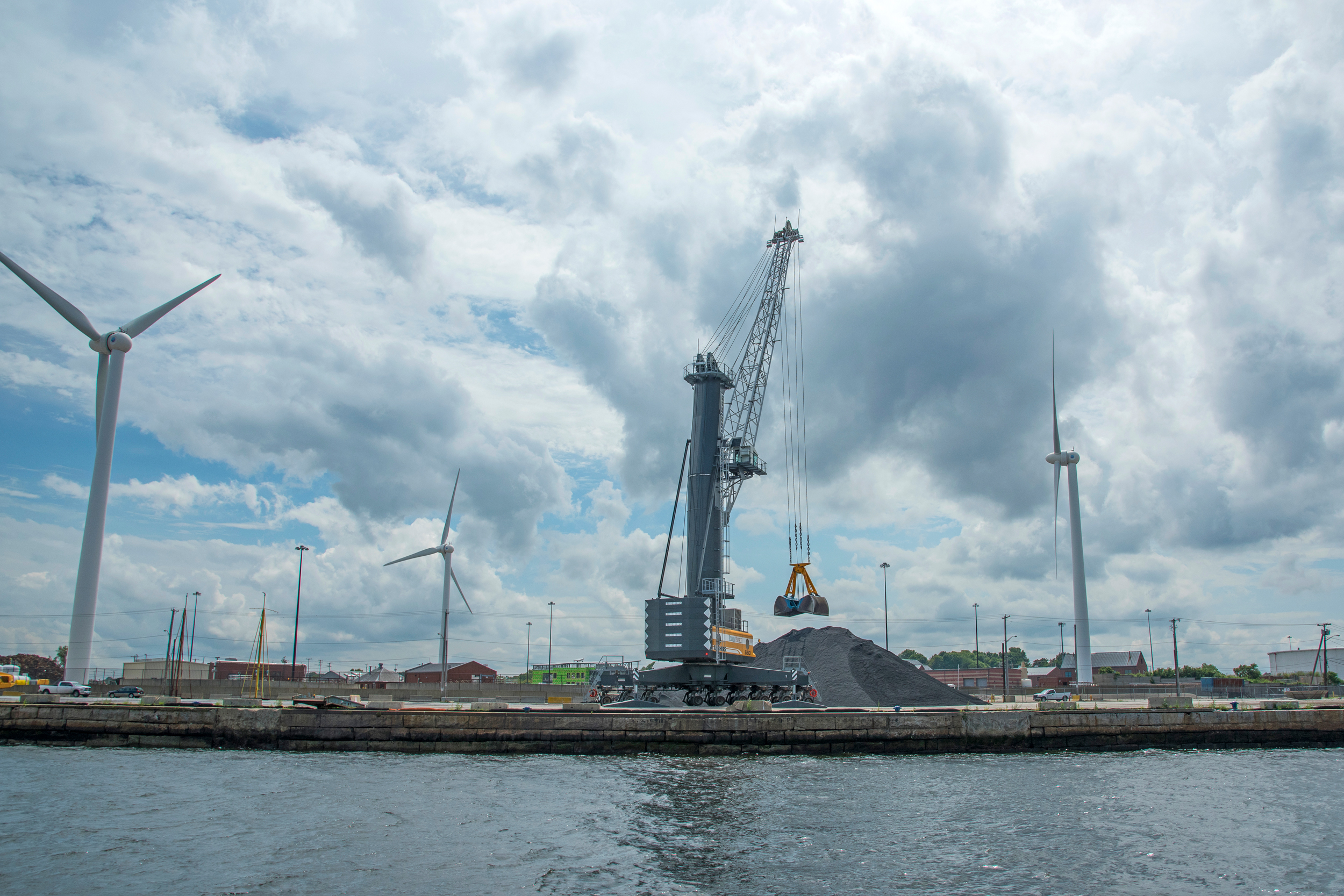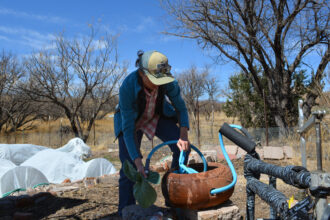In Providence, Rhode Island, the People’s Port Authority closed out 2024 celebrating some big wins. With a strong coalition of community partners, and following a $27,000 grant from the Justice40 initiative, the grassroots organization successfully advocated for a new amendment to the city’s comprehensive plan, which now prohibits the development of new fossil-fuel based power plants and other polluting and toxic facilities in the Port.
The Port of Providence has often been targeted in environmental justice efforts. Residents of the area, mostly low-income and people of color, are exposed to hazardous and toxic materials daily. According to a study conducted by the Rhode Island Department of Environmental Management, they also represent the majority of asthma-related medical emergencies.
While the PPA usually stays away from federal money to support its efforts due to the complicated application process, Monica Huertas, PPA’s director, said their experience under the Biden administration’s Justice40 initiative was different.
Justice40—discontinued by Trump—committed 40 percent of federal funding in numerous programs to low-income neighborhoods and communities of color that are disproportionately harmed by climate change and environmental harms.
“I didn’t even know that it was a federal grant because it was so easy for us to just get the money,” she said. “They knew our organization. They knew what we’re doing.” It was like the government was finally supporting small organizations, she said.
“I think a lot of folks thought that once Biden signed (the Inflation Reduction Act) … that it was going to be set in stone,” Huertas said.
But the ground no longer feels solid. With Trump’s cuts to the Environmental Protection Agency and general uncertainty surrounding the future of environmental justice efforts, the grant application process has turned into a horror story, Huertas said.
The PPA is currently applying for an Environmental Justice for New England grant, an effort funded by the EPA to distribute $48 million over three years to projects which seek to address “past, current, and future environmental health and justice challenges,” according to its website.
After Trump announced cuts to EPA, specifically targeting environmental justice programs, Huertas received no information on whether the EJ for New England grant would still be available. The program extended their application deadline, previously February 14, to March 7, due to “recent confusion” caused by the funding freeze.
EJ for New England employees are similarly trying to navigate evolving information about the funding freeze. Carolyn Lin, director of the New England Environmental Justice Thriving Communities Technical Assistance Center, which assists those hoping to apply to an EJ New England grant, said that they decided to refrain “from these discussions while it seeks more clarity and definitive information” about the future of the grant.
Huertas has also struggled to renew PPA’s Unique Entity Identifier number, which is necessary for applying for the grant. While the number needs to be renewed annually, Huertas said she never experienced any issues before this year. Every time she tries to renew her number, she receives a message saying the number is invalid. “So it’s these little things that make you wonder, what is going on?” she said.
“I’m still going to apply, because I have everything ready, but I don’t have my hopes up at all,” Huerats said.
The PPA has “been very successful just within the last five years,” Huertas said, and more money would allow her to hire more staff to focus on studying and creating policy at the local level.
The PPA advocates for an environmental justice act in Rhode Island, which would “limit the cumulative impacts of polluting businesses in the port by preventing new businesses that would add to existing pollution,” said state Sen. Tiara Mack, who is sponsoring the legislation soon to be introduced.
The state-level bill would also benefit communities in Pawtucket and Newport, for example, Mack added.
When asked about attempting to pass this bill under Trump’s administration hostility toward environmental justice efforts, Mack said: “Whatever you call the work, it doesn’t change. And I think many people are ready to still do that work under different names.”
About This Story
Perhaps you noticed: This story, like all the news we publish, is free to read. That’s because Inside Climate News is a 501c3 nonprofit organization. We do not charge a subscription fee, lock our news behind a paywall, or clutter our website with ads. We make our news on climate and the environment freely available to you and anyone who wants it.
That’s not all. We also share our news for free with scores of other media organizations around the country. Many of them can’t afford to do environmental journalism of their own. We’ve built bureaus from coast to coast to report local stories, collaborate with local newsrooms and co-publish articles so that this vital work is shared as widely as possible.
Two of us launched ICN in 2007. Six years later we earned a Pulitzer Prize for National Reporting, and now we run the oldest and largest dedicated climate newsroom in the nation. We tell the story in all its complexity. We hold polluters accountable. We expose environmental injustice. We debunk misinformation. We scrutinize solutions and inspire action.
Donations from readers like you fund every aspect of what we do. If you don’t already, will you support our ongoing work, our reporting on the biggest crisis facing our planet, and help us reach even more readers in more places?
Please take a moment to make a tax-deductible donation. Every one of them makes a difference.
Thank you,













